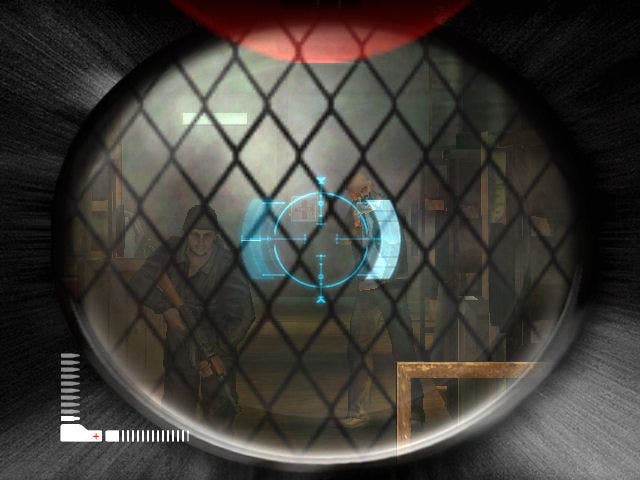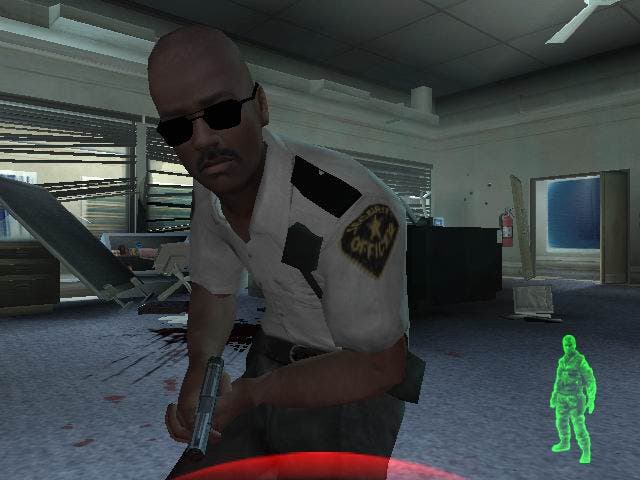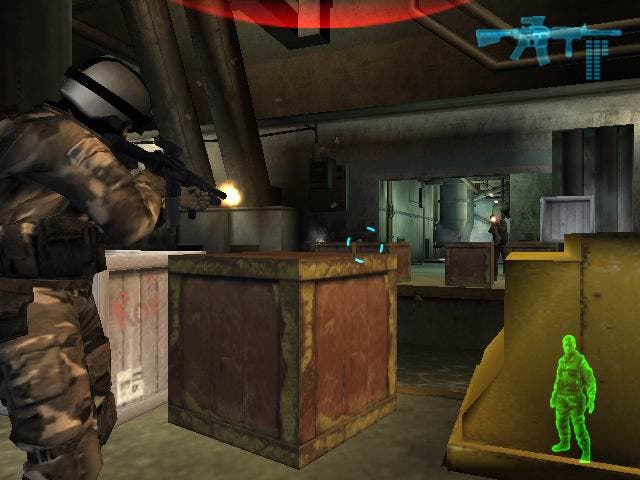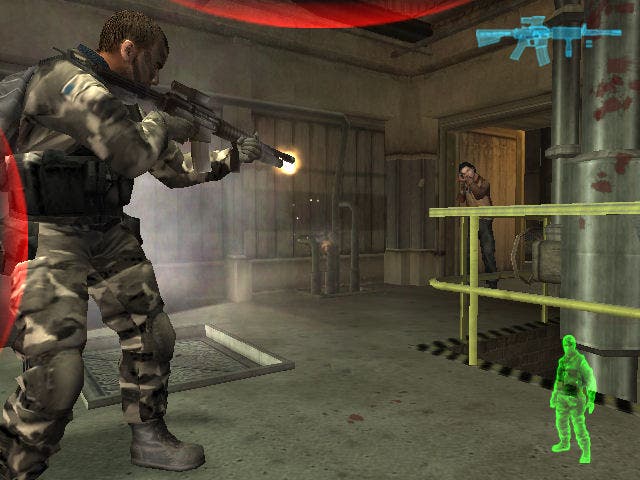Coming Full Circle
The concluding part of our exclusive interview with Circle's Adrian Smith, who talks next-gen plans, why PS2 will be around for years and why they ditched their own technology.

It was a big change for us! One of the agreements [with Eidos] was that we had access to all of the technology that we developed.
At the end of the day we'd taken on people who had written systems for Core, and we were going to rewrite those systems by virtue of it being the same person. There were going to be common elements; and so we didn't want to get into that, so we agreed with Eidos to take everything we had done and we've used absolutely none of it! The big thing that happened on coming to this building was that all the programmers we brought... As a start up group the single biggest department were the coders because we knew that was where it all worked initially. And they came and said, "we don't want to write an engine again. We want to take something and just add value to it".
Yes, we went for middleware, we went for Renderware. It was a very interesting argument when it happened. It was a big change.
Not from the programmers.

No, the programmers drove it forward and our guys have written numerous engines at Core. We were always writing different engines, and they were the guys that we [hired from Core], and yet they said, "we don't want to write an engine - we just want to add value to it". So I was like, fine. The problem with us; well, not so much me, maybe more Jeremy, because the perception to him was that going to talk to publishers and saying that "we're actually using middleware" was a negative to the extent that he felt we're losing an edge by not developing it.
In actual fact it was very much a positive as publishers view it, we hope, as okay you've got an established foundation, we know where you are with that. You're not telling us you're still inventing it - which we were with Angel Of Darkness, still going, still going, still going, still going; we never bloody finished - and consequently they then said look, we either go one of two ways; we're writing videogames or we're writing technology. And they said we don't want to write technology; we want to write videogames. So all the programmers have been doing is adding value to Renderware, and we've got a great relationship with those guys, but we probably have five per cent of Renderware left.
We absolutely hammered it, along with the Renderware guys, which is why we have a good relationship with them. Yes you can take it as an off the shelf solution and make an average game that looks okay, but we just looked at what was good, what was bad and by having the sort of people that we've got we sort of reinvented elements of it, and we've really put a lot of our value into the whole tool chain, the animation system and the world system that's bolted onto the end and it has worked really really well.
Yes, it gave us an established base, it gave us some known elements, and it gave us the ability quite early on to get things up and start looking how they feel, playing them and seeing how they feel. It allowed us to do that and let the guys concentrate on areas that they knew needed improving without the whole system stopping functioning. We could snap things out, fix it, put them back in.

No, we've got another couple of games going on at the moment, which are very much internal. One is a kind of high concept idea being kicked around and another is a little bit further into production, which is great. And we were afforded that a high percentage of the programmers are finished, so we were adamant that they weren't developing technology for Without Warning, they were developing a Circle engine and so that whole department just sort of split down the middle.
We've got tools guys that are on a next-gen path, and we've got another side of it, which is the game guys that are always working on specific games seeing how it feels. And we've got some of the core guys which are doing the core engine, the system, and what we're missing.
The whole difference with Circle is we viewed it that games today and in the future are very much about content. If you put content into something, it doesn't matter what that something is as long as it supports it well.
Yes, very much so.
I wouldn't say that, Christ! [laughs] It made it hard; I think we learned a lot from it.
Yes it did become a nightmare and we learned a lot from that, and I think the industry should learn a lot from that. The PlayStation 2's going to be around a lot longer than people think, and there's still going to be a market for PS2 when PS3 becomes available, and I think the transition's going to be an interesting one. We've got next-gen ideas and methodology and we've been working on those for four-to-six months.
But it's not so much about what the engine can do because, again, we'll probably pick up on middleware for that; it's more about how the company's structured to supply that demand.
I'd have to say Renderware; they're offering it at a level of talking about how you go about it, the procedural side of what's going to be different, and we're moving further along the line with them. We're having good conversations with them about next-gen.

I think a good nine to 12 months window after the launch of the PS3. There will still be games that haven't burned through.
Q3 2006? Really? [Maniacal laugh] It's probably stretching it a bit to start developing a game then, but to release one, yes.
I think the opportunity comes again at the beginning of new hardware cycles. We know there's going to be the suite of EA games, fighting games, and a whole glut of first-person games, but I do think there are areas in the launch of the new hardware when you can establish a new franchise and be a little bit more creative.
Pretty much so, yeah. Without Warning had to be in some elements safe, a known quantity, and had to be what it said on the tin. But there is a creative element in there; undoubtedly we're not lacking that and want to make it something different, but something different that fits in a sort of established genre, and then with the next-gen stuff there is a little bit more freedom in there, and you can be a little bit more out there, you can do things that hopefully excite people.
Adrian Smith is development director at Circle Studio. You can read more about Circle and its first game, Without Warning, in the first two parts of this interview, here and here.

